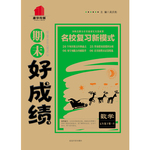题目内容
It was a sunny day. A city man was driving along a country road with a new wagon(马车)and a beautiful pair of horses. He didn’t pay a lot of 11 to where he was going. Pretty soon 12_ that he was lost, but he continued to drive, expecting to refind his way or to 13 someone who could tell him how to get back to the 14 .
It was a long 15 road. For many __16__ he kept on driving. When it was almost dark ,he saw in a field a tall 17 ploughing(犁地) the land. He stopped his 18 team of horses near the fence and called out,“Hello,farmer.”
“Hello,yourself,”the farmer___19____,still ploughing .
“Where does the horse go?”he asked without knowing his language mistakes.
“I haven’t seen it go anywhere. It 20 stays right where it is,”said the farmer,withoutstopping his work.
“How far is it to the next town?” said the city man,speaking a little more 21 .
“Don’t know. I never 22 it,” replied the farmer. By this time the city man was getting 23 .“What do you know?You’re the biggest fool I ever saw.”
Finally stopping, the farmer turned and looked for a long time 24 at the city man. Then he said,“Maybe I don’t know much. 25 I am a fool. But at least I’m not lost!”
1. A.signs B.orders C.attention D.direction
2. A.realized B.recognized C.accepted D.received
3. A.miss B.meet C.look D.lose
4. A.town B.country C.capital D.village
5. A.lonely B.busy C.dirty D.crowded
6.A seconds B. minutes C. hours D years
7. A.driver B.policeman C.farmer D.worker
8. A.strong B.tired C.weak D.tiring
9. A.asked B.demanded C.replied D.ordered
10. A.always B.often C.sometimes D.seldom
11. A.politely B.friendly C.loudly D.angrily
12. A.judged B.measured C.saw D.studied
13. A.sad B.lovely C.friendly D.angry
14. A.gladly B.immediately C.silently D.excitedly
15. A.Generally B.Fortunately C.Certainly D.Perhaps
1.C
2.A
3.B
4.A
5.A
6.C
7.C
8.B
9.C
10.A
11.C
12.B
13.D
14.C
15.D
【解析】
试题分析:本文叙述了一个城里人驾着有一对漂亮的马拉着的新马车,因为他没有注意走的方向,很快就迷路了,但是他还是继续向前走,希望碰见一个人问一下,可是他走的路是特别长又偏僻,当天快黑了的时候,他看见一个农民在地里犁地,两人有个不愉快的谈话,城里人非常生气,但是他还是没有问出道路怎么走。
1.考查名词及上下文的呼应。 signs标志; orders命令; attention注意; direction方向。pay attention to注意;他没太注意他走向哪里,故选C。
2.考查动词及上下文的呼应。realized意识到; recognized认出; accepted接受; received收到。很快他意识到他迷路了,故选A。
3.考查动词及上下文的呼应。miss错过; meet相见; look 看; lose失去。他继续向前走,希望重新找到路,或者遇见某个人提告诉他如何走回城镇,故选B。
4.考查名词及上下文的呼应。 town城镇; country乡村; capital首都; village 村庄。How far is it to the next town?故选A。
5.考查副词及上下文的呼应。 Lonely偏僻的,寂寞的; busy繁忙的; dirty脏的; crowded 拥挤的。For many __16__ he kept on driving.走了很长的路没有人,所以这条路是偏僻的,故选A。
6.考查名词及上下文的呼应。 seconds秒; minutes分钟; hours 小时; years年。根据It was a long 15 road.路长,所以用的时间长,故选C。
7.考查名词及上下文的呼应。 driver司机; policeman警察; farmer 农民; worker 工人。根据“Hello,farmer,可知应选C。
8.考查形容词及上下文的呼应。strong强壮的; tired累的; weak弱的; tiring 令人厌烦的。根据上文可知他已经走了好几个小时,所以马队也累了,故选B。
9.考查动词及上下文的呼应。asked问; demanded要求; replied回答; ordered命令。根据上下文可知城里来的人问,那么这个农民就回答,故选 C。
10.考查副词及上下文的呼应。 always一直; often经常; sometimes有时; seldom 很少。它一直呆在它呆的地方,故选A。
11.考查副词及上下文的呼应。politely礼貌地; friendly友好的; loudly大声地; angrily 生气地。城里的人问这里离下一个城镇多远,他说话有点大声,故选C。
12.考查动词及上下文的呼应。judged判断; measured测量; saw看见; studied 研究。这个农民说到:我不知道,我从没有测量过,故选B。
13.考查形容词及上下文的呼应。 sad伤心的; lovely可爱的; friendly友好的; angry生气的。但是这一次城里人变得有点生气了,故选 D。
14.考查副词及上下文的呼应。gladly高兴地; immediately立刻; silently静静地; excitedly兴奋地,激动地。最后这个农民停止了工作,他转过身静静地看了一会,故选C。
15.考查副词及上下文的呼应。generally通常;fortunately幸运地; certainly一定; perhaps也许。农民说:也许我是傻子,但是至少我没有迷路,故选D。
考点:故事类短文。
点评:在作题时最好将全文通读一下,了解了全文的大意以后再作题。看清上下文,找准定位词。充分利用文章的上下文和前后句,找到对选择有提示作用的词或句。这些词有时可能是同义词或反义词。注意固定的搭配,包括动词与介词的搭配、动词与名词的搭配以及形容词与名词的搭配等,同时要根据内容选择正确的短语,有时用已了解的生活常识来确定答案。

 期末好成绩系列答案
期末好成绩系列答案 99加1领先期末特训卷系列答案
99加1领先期末特训卷系列答案I came to study in the United States a year ago. Yet I did not know the American society until I was injured in a car accident because after the accident I had to see a doctor and go to court(法庭).
After the accident, my roommate called a doctor for me. I was very grateful and determined to repay him one day. But the next day, he asked me to pay him $200 for what he had done. I was astonished. He had good reason to charge me, he said. And if I wanted to collect money from the person who was responsible for my injury, I'd have to have a good lawyer. Now that he had helped me to find a good doctor, it was only fair that I should pay him.
But every time I went to see the doctor, I had to wait about 50 minutes. He would see two or three patients at the same time, and often stop treating one so as to see another. Yet he charged me $115 each time. The final examination report consisted of ten lines, and it cost me $215.
My lawyer was all smiles the first time we met. But after that he avoided seeing me at all. He knew very well the other party was responsible for the accident, yet he hardly did anything. He simply waited to collect his money. He was so irresponsible that I decided to dismiss(解雇)him. And he made me pay him $770.
Now I had to act as my own lawyer. Due to my inexperience, I told the insurance the date I was leaving America. Knowing that, they played for time, and I left without getting a cent.
My experiences taught me two things about America: firstly, in a country like America money is everything. It is more important than friendship honour or professional morality(职业道德). Secondly, foreigners are still being unfairly treated. So when we talk about America, we should see both its good and bad sides.
【小题1】The author's roommate offered to help him because_____.
| A.he felt sorry for the author |
| B.he thought it was a chance to make some money |
| C.he knew the doctor was a very good one |
| D.he wanted the author to have a good lawyer |
| A.be properly treated |
| B.talk with the person responsible for the accident |
| C.recover before he leaves America |
| D.eventually get the responsible party to pay for his injury |
| A.be responsible | B.accuse |
| C.ask as a price | D.claim |
| A.friendly | B.greedy |
| C.professional | D.busy |
| A.Going to court is something every common in America |
| B.One must be very careful while driving a car |
| C.There are more bad sides in America than good sides |
| D.Money is more important than other things in the US |